Alumni Feature: Rob Frazier (’75) – Becoming A Wisdom Elder
Rob Frazier mentors Christians doing arts and music ministry across the world, drawing from his experiences as a music artist and as a pastor.
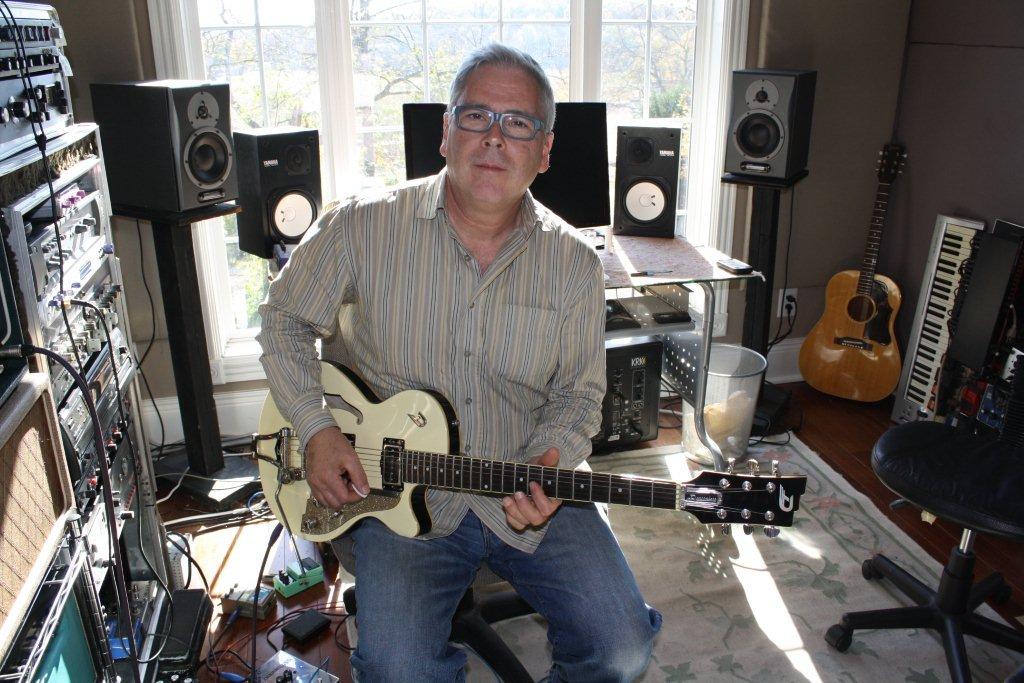
During his senior year at The King’s College in Briarcliff Manor, New York, Rob Frazier (English ’75) had a clear plan for his future. He was engaged to Beth Brittain, a student at Nyack across the Hudson River. Their wedding would take place the summer after graduation. He had scored in the 99th percentile on the GRE and was expecting to be accepted to a New York University English Literature graduate program, seeking a career teaching college-level English. Beth was in the process of applying to NYU’s social work program, and the two had begun looking at apartments in Greenwich Village. “We had mapped out our young lives,” Rob says.
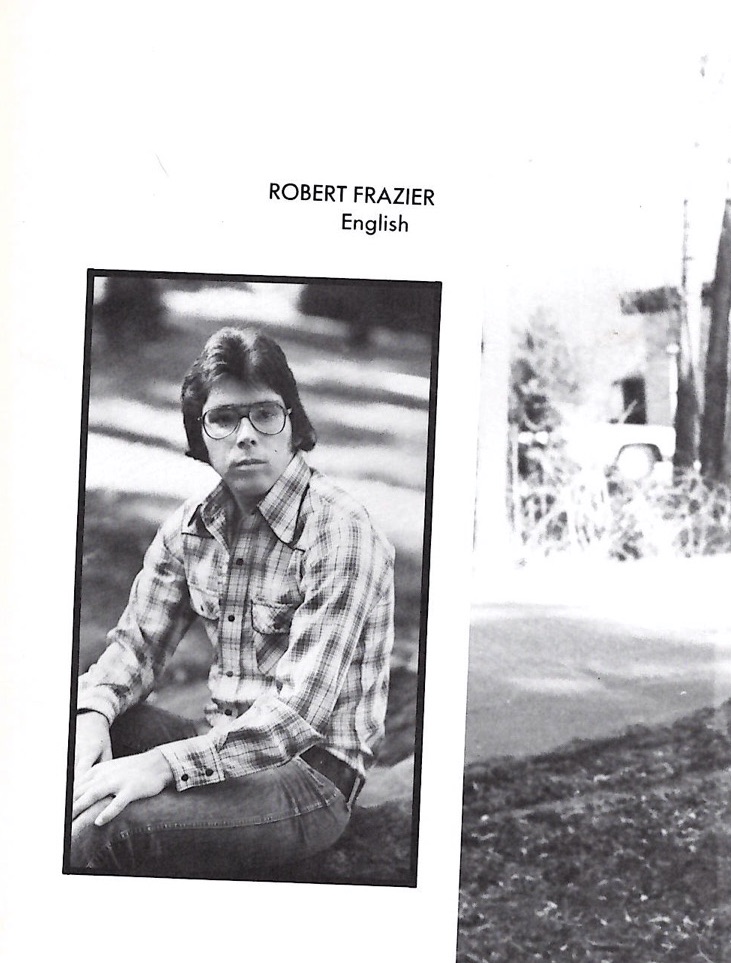
Then in March 1975, a few months before graduation, Beth was killed in a car crash. Rob’s vision for the future disintegrated. “Suddenly all my plans seemed pointless.” Knowing that his GRE scores would be valid for the next several years, Rob put aside the plan for grad school for the time being. Through a contact of TKC president Dr. Robert Cook, Rob began touring Europe with a Christian band doing music evangelism, drawing from his musical upbringing and classical training in piano, voice, and guitar.
The decision to turn towards music performance instead of graduate school set the course of his next two decades, Rob says. After two years of music evangelism, he moved to Nashville and played keyboards and guitar in the band Petra for four years and then began a Grammy- and Dove-nominated solo career. He shifted to pastoral ministry in 2000. Today, he blends his experiences as an artist and as a pastor, mentoring Christians doing arts and music ministry across the world.
Rob’s mother Margaret was a gifted pianist and vocalist who performed in a women’s vocal trio often appearing on radio alongside the founding president of The King’s College, Dr. Percy Crawford, throughout the 1940s and ’50s. Rob’s father W. Burwell Frazier was a pastor and church planter in the Philadelphia area, where King’s was well-known among local evangelical churches. Rob decided on King’s after a campus visit in his senior year of high school. He was drawn by the small Christian community, invested faculty, and beautiful campus, as well as the financial aid.
Rob enrolled as a music major at King’s. However, the music program was more focused on classical music and music education whereas his desire was to go into songwriting and popular music. He eventually shifted to English to pursue creativity more broadly. He relished his studies with professors such as Mrs. Marilyn Mollenkott, who taught upper level English courses (“she really blended head and heart in a way that inspired us to see the beauty in great writing,” Rob says), and Dr. Reed Arlton, director of The King’s College choir in which Rob participated all four years. (“His love for music and the students was legendary.”)
“I was always impressed by the faculty who were so devoted,” Rob says, noting how many of the faculty would make long commutes from elsewhere in the New York/New Jersey area. And he was struck by the variety of Christian conviction he found at King’s. He learned that Christians could believe different things regarding the end times, for example. Professors strengthened his faith by asking, “Why do you believe what you believe?” and by exposing him to new ideas and beliefs in a safe environment. Rob says, “I’m still an evangelical believer; I’m a historic, Bible-believing Christian, but I had to cut some of my legalism loose.”
***
In 1978, after a few years in Europe, Rob moved to Nashville on the invitation of Steve Wyer, a friend he’d met at King’s. (Steve was only there for a semester, but the two have remained friends, and Steve is the person responsible for introducing Rob to his wife of forty years, Carol.) Steve worked in a Christian music agency and was one of the agents representing Petra. Knowing that Petra needed a keyboard player, Steve helped make the introduction, and Rob interviewed and was hired.
Rob struck out on his own after his years with Petra. He would go on to release 7 solo albums and to write and record numerous Top 10 CCM songs for himself and others, including “Train Up a Child,” “(Doesn’t Anybody Pray in) This Town,” “Break My Heart,” “He’s All Your Need,” “Go Through Fire,” “The Heartland,” and “Got Your Word On It”; he toured Europe and the United States with Steve Camp and Rick Cua. He worked outside of the CCM scene as well, co-writing the 1982 Kansas hit “Play the Game Tonight,” and he has received two Grammy and three Dove Award nominations for his songwriting. He and Carol had three children during these years, all of whom are now grown and working in the arts professionally.
The decision to depart from Petra panned out well in terms of his career, but reflecting on it now, Rob says his own immaturity was a factor in the decision. “It wasn’t the best made decision, to be honest,” he explains. “I had started to have some success in the songwriting world, apart from Petra. And I thought, ‘They’re really appreciating me.’ . . . If I knew then what I know now about how to work through those relational conflicts, and not let ego drive your decisions, I might have made some different decisions. We’re all running on mixed fuel, especially in the young adult years.” Even so, Rob says, he is “very grateful for the opportunity to have done the things I’ve done.”
Many of Rob’s performances took him to churches, and he began to envision himself in a pastoring role. He had also become interested in reading books of theology, and was involved in lay ministry through his church, Belmont.
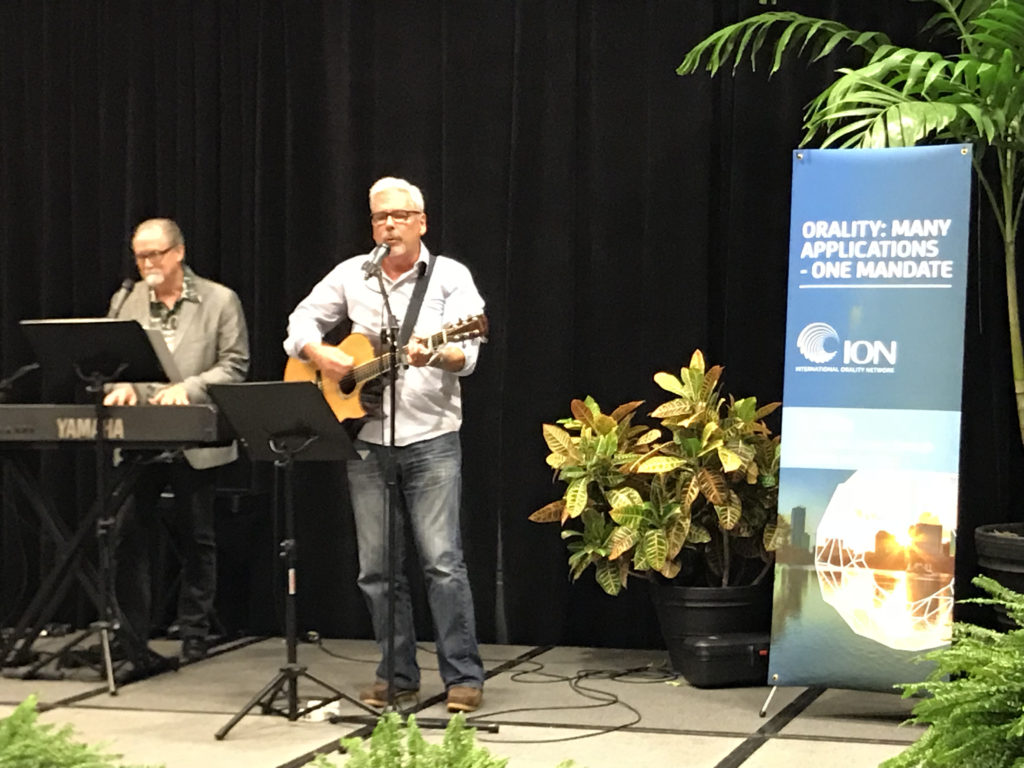
Fellow church member Mick Antanaitis recalls how Rob had invited him to join a trip to Mexico as a medical caregiver in 1989. Through the windows of the medical bus where he was working, Mick watched as Rob bent down to talk to children and served food to elders. “I saw this deep place of compassion,” Antanaitis says. Because of Rob’s encouragement that Mick participate in this trip, missions became more of a focus of Mick’s life and he later became a missions pastor at Belmont Church. “Watching Rob in action was a key moment in my life,” Mick says. “He called out something that was in me that I was unaware was such a strong calling.”
In 1997, 22 years after turning down his grad school acceptance, Rob enrolled in seminary at Regent University, “almost as just a personal adventure.” Beginning to serve as a young adult pastor in 2000 was also a welcome change of pace, as Rob’s entire career up until this point had required a demanding travel schedule.
Rob’s longtime friend Steve Wyer says of this transition: “A song can say something strong and profound to a mass audience, but the intimacy you have in a small group, or a one-on-one, or walking a family through some tragedy or success—that’s a different level of intimacy. As he grew, that pastor heart outweighed the impact he could have on radio, as an example.”
But working as a pastor didn’t mean leaving behind Rob’s creative giftings. Through his English degree and his years as a songwriter, Rob “got friendly with the idea that human beings are so complex. We’re not just fact-gatherers, we’re experience-gatherers, and the way we experience truth has a big impact on what we make of it. I loved the idea of crafting sermons like songs.”
Since 2017, Rob has mentored Christian artists through the organization Artists in Christian Testimony, International (A.C.T. Intl.), which helps provide backend and fundraising support for Christians doing artistic or musical ministry, many of them bi-vocational. Founded by Byron Spradlin, the co-founder of Jews for Jesus, A.C.T. Intl. supports 400 artists working in 35 nations. “We help them set up and carry out their ministries on a non-profit, donation-based basis, to be able to go anywhere and everywhere God opens a door.” Rob nurtures and coaches artists who are now in the same position he was in the first half of his career. And at the same time, music remains a part of his life: he keeps a studio at home and serves as worship pastor at First Baptist Church in Pleasant View, Tenn.
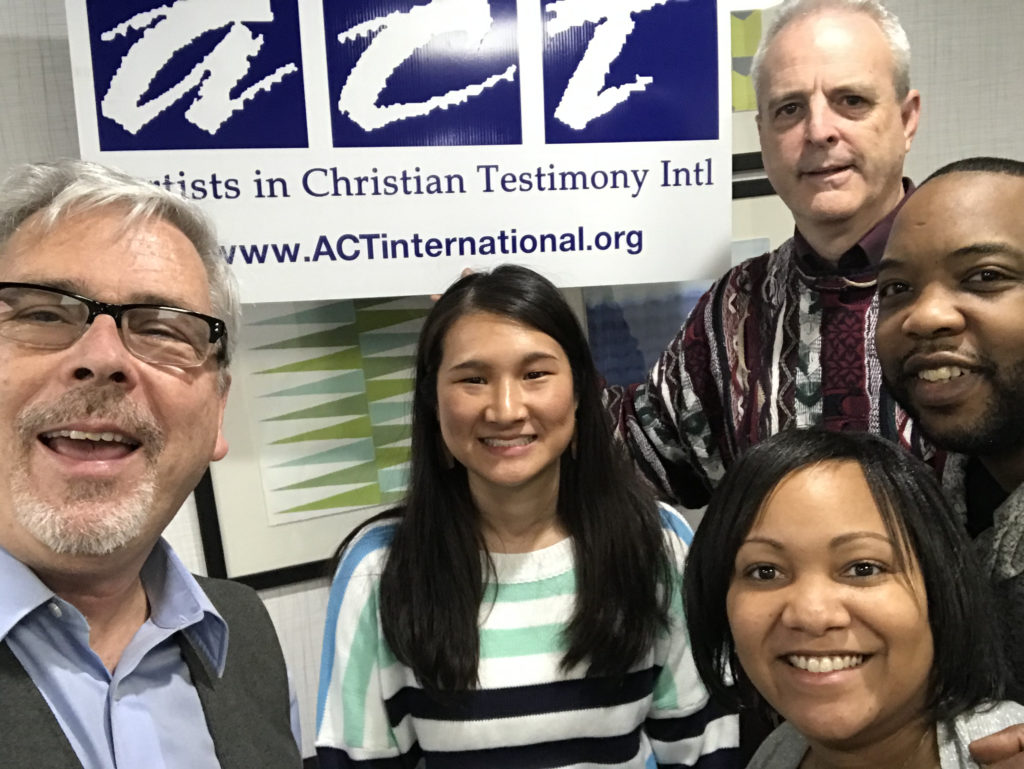
Steve says that Rob’s life has been “a beautiful circle.” He continues:
He was able to take everything that he learned in the first season of his life regarding talent and giftings and sensibilities about music, and ministry on the road, and over a decade of pastoral work. He’s able to tap into not just the things he did right but the things he did wrong. He’s become a wisdom elder to younger people out on the road ministering on the front lines, and he gets them. . . . He’s talking to people at 11 o’clock at night, halfway across the world, who are so discouraged and he’s able to be there with them.
Rob credits God’s sovereignty for bringing him through each of the decisions in his life, from the choice to start off with music evangelism—“a decision that felt like it was made for me”—to getting to attend graduate school after all. He even teaches young adults like he first planned, as an adjunct professor of Bible and theology at Williamson College in Franklin, Tenn.
In so many areas, it is evident that God has been at work through Rob’s life. Yet he cautions against trying too hard to force reasons onto God’s sovereignty. “If you take it too far in terms of human logic, you say, ‘God must have wanted something different for you, so God allowed your fiancée to die.’ It gets kind of bizarre when you try to place human reasoning and logic onto God and to his way of doing things.”
Sometimes, “There’s no reasoning. His ways are higher than our ways,” Rob concludes. Yet the persistent theme is this: “God has been gracious.”
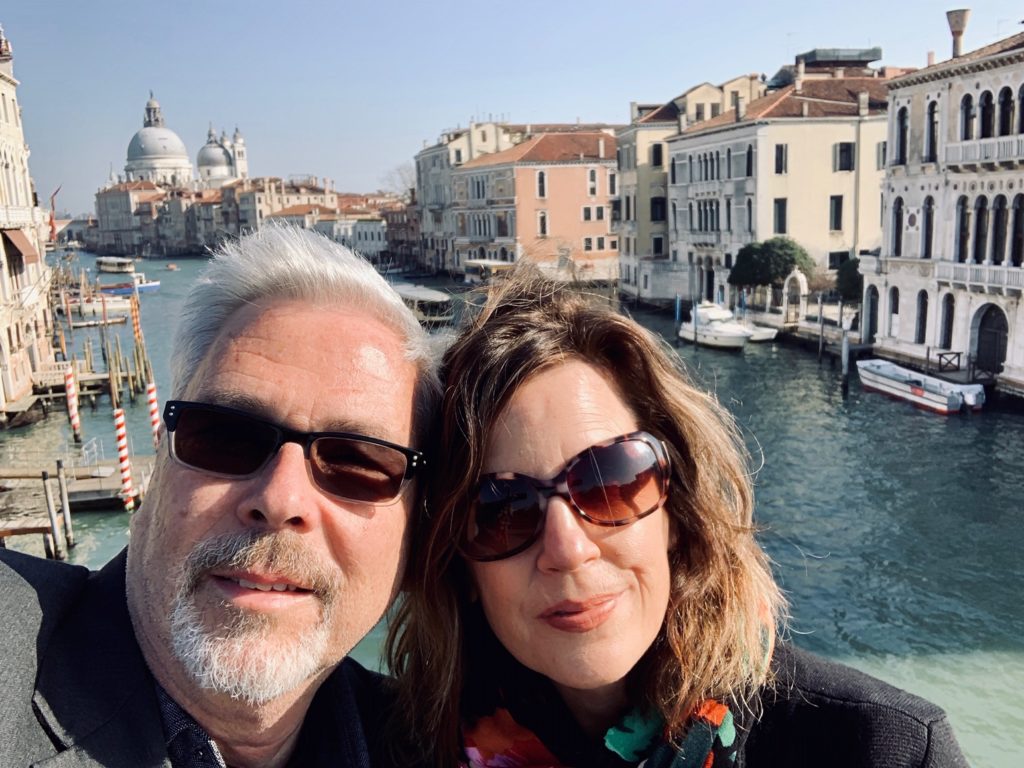
All photos courtesy of Rob Frazier.




